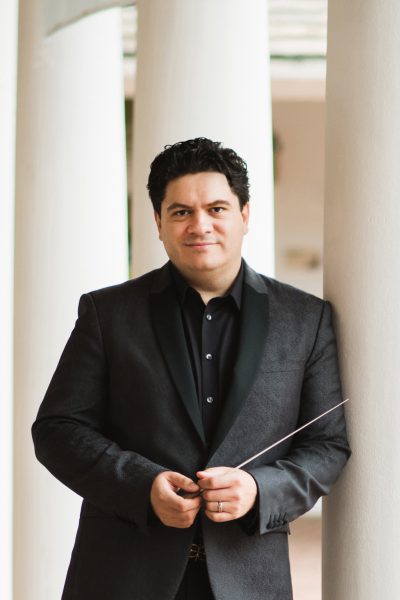Trifonov & Orchestre National de France open American tour with Gallic style

“When good Americans die,” Oscar Wilde said, “they go to Paris.”
Sometimes, though, Paris comes to America. So it happened that the Orchestre National de France found itself at Mechanics Hall in Worcester Friday night, kicking off the group’s first U.S. tour in almost a decade. Founded in 1934, the ensemble boasts an illustrious history and their all-French program, which was presented by Music Worcester and led by ONF music director Cristian Măcelaru, largely played to the collective’s rhythmic and coloristic strengths.
It certainly didn’t hurt that pianist Daniil Trifonov was on hand to provide his takes on concerti by Camille Saint-Saëns and Maurice Ravel. The Russian-born, New York-based keyboardist ranks among the most dynamic keyboard artists in a generation rife with them, as his traversals of the former’s G-minor installment (No. 2) and the latter’s G-major reminded.
Though not everything he wrote was of equal quality, Saint-Saëns’ best output was ingenious and fresh. And the Second Piano Concerto certainly counts among the elect: among other things, its integration of solo and orchestral part writing (especially in the rhapsodic first movement) is bracing.
Trifonov’s rendition was texturally clean and thoughtfully blended with the orchestra, notably in that opening Andante. At the same time, the muted tonal quality of his Steinway sometimes meant that the piano’s softest utterances were covered by the larger ensemble.
Nevertheless, a certain tension is desirable in this music and that much was especially evident in the latter movements. Particularly in the scherzo, the ONF’s rhythmically precise deliveries of its iterations of the opening motto and Trifonov’s slightly more flexible approach to the same played off one another energetically. The finale was a feisty race.
By contrast, the pairing’s account of the Ravel betrayed a more simpatico outlook. Modeled on music by two of the composer’s idols—Saint-Saëns and Mozart—the Concerto in G also incorporates more than a few nods to Gershwin, jazz, and the black American spirituals Ravel encountered on his U.S. travels in the 1920s.
Friday’s interpretation was outstandingly refined and decidedly Classical in approach. Trifonov’s playing across the concluding Presto, in particular, evinced a kind of raucous clarity that was eminently balanced—the dialogues between soloist and woodwinds were all on-point—and never out of control.
Even so, the performance was consistently exciting, reveling in the music’s bold plays of contrasts: crisp vs. dreamy, smoky vs. lucid, inward vs. extroverted. The central Adagio, perhaps the most perfect nine minutes of music to come out of the entire 20th century, was magically focused and hypnotically balanced.
Rarely, too, does the concerto’s orchestral accompaniment speak with such immediacy. Măcelaru and his forces luxuriated in Ravel’s sly reminiscences of Harlem speakeasies and nightclubs, as well as his inimitable imagination: where on earth—or from beyond—the Allegramente’s harp cadenza comes from is anyone’s guess. But that episode delivered one of the night’s most stylish, enchanting moments.
Subtle instrumental qualities spoke with similar boldness in the night’s purely orchestral fare.
Elsa Barraine was a friend and contemporary of Messiaen’s and, though her Symphony No. 2 is the definition of a curiosity, it’s one worth getting to know. Across the score’s three movements, the composer fused an angular songfulness with an ear for color that recalls Ibert at his more cinematic. Though the finale is a shade abrupt, Friday’s account of the work’s first two movements—especially its potent, central funeral march—offered no shortage of acid, drama, and nervous lyricism.
The Suite No. 2 from Ravel’s Daphnis et Chloé is more established. Yet familiarity needn’t breed complacency, as the ONF’s vivid, sumptuous reading educed. Indeed, there was a palpable sense of pride of ownership on display in the orchestra’s playing, the big woodwind solos masterfully done and ensemble balances models of character and transparency.
As it turned out, Daphnis’ raucous “Danse générale” was but a prelude to the night’s generous encore, a complete performance of Bolèro. Expertly paced and building from absolutely nothing to a thrilling, cacophonous peroration, Friday’s reading had tremendous color, zeal, and vitality—just the sort of thing to make one hope anew that Wilde’s quip is more than an empty wish.
The program will be repeated 2 p.m. Sunday at Carnegie Hall. carnegiehall.org
